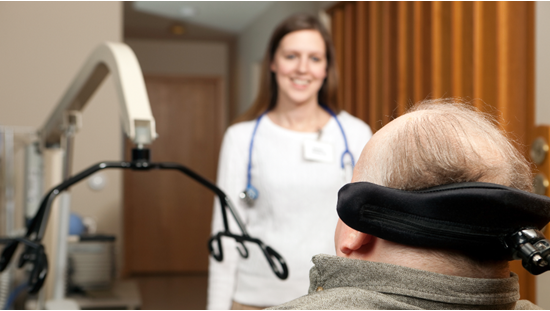Multiple sclerosis (MS) is an unpredictable, potentially debilitating disease that affects the central nervous system. More than 2.3 million people are affected worldwide, with symptoms that range from fatigue to difficulty seeing, to challenges with mobility. Symptoms can start or worsen without warning, taking a mental toll as well.
While there is currently no cure for MS, much progress has been made to use medications to treat the disease and slow or minimize the symptoms. In addition to medications, occupational therapy can make a significant difference in helping people regain, learn or modify skills so they can continue their daily activities.
Understanding MS
Multiple sclerosis is a disease in which the immune system attacks the central nervous system, damaging certain structures and cells including the fatty sheath that surrounds and protects nerve fibers, and the underlying nerve fibers themselves. Because of this damage, messages within the central nervous system (which is made up of the brain, spinal cord and optic nerves) are altered or don’t get through. Scar tissue develops in the damaged areas, leading to the term sclerosis.
With the damage occurring in the central nervous system, almost any function can be affected. Because there are four different types of MS as well as the unpredictable nature of the disease, one person’s experience may not match another person’s. Symptoms could include:
-
Cognitive difficulties, including memory loss, problems with attention and planning
-
Visual problems including blurred vision, loss of color vision, blindness, dark spots in the visual field or uncontrolled eye movements
-
Fatigue—quickly exhausted doing normal tasks, which may be worse in hot and humid weather
-
Pain
-
Motor problems such as weakness, spasms, spasticity, tremors and mobility impairments
Benefits of Occupational Therapy
Occupational therapy (OT) is a rehabilitation profession that helps people regain, learn or modify the skills needed to perform their daily living activities. This could include basic tasks such as brushing teeth, putting on a sock or balancing a checkbook. It could include helping a person modify activities to make a task simpler or less tiring. And while much of occupational therapy involves helping people complete essential tasks, there is also an emphasis on helping them develop the functions needed to complete the tasks they enjoy. For example, one person with MS is developing balance and learning how to maximize his upper body strength so he can return to his hobby of fishing.
During occupational therapy, a person’s symptoms and function loss are assessed and together, the person and the occupational therapist develop goals and a treatment plan. Depending on the setting, occupational therapists can provide education and training on a variety of topics including:
-
MS disease
-
Fall prevention
-
Energy conservation

-
Motor exercises
-
Upper-body strengthening and stretching
-
Stress management
-
Medication management
-
Money management
-
Daily living activities and modifications
-
Adaptive device training
-
Driving evaluation and rehabilitation
-
Organizational skills training
-
Time management training
-
Safety training
-
Caregiver training .
Because MS progresses and changes, the OT evolves as well, adapting to meet new needs to help maximize functional abilities. Occupational therapists work closely with other members of the rehabilitation team, including physical therapists and speech therapists to meet the patient’s goals.
While MS is a challenging diagnosis, with a multi-pronged approach to tackle this disease, people with MS have more opportunities than ever to live their lives fully.
We Build Relationships
We believe that maintaining a healthy lifestyle is the key to living a longer, healthier life. Orlando Health Physicians strive to build a relationship with each patient. Request an appointment with one of our primary care physicians with offices located throughout Central Florida.
Schedule an Appointment











